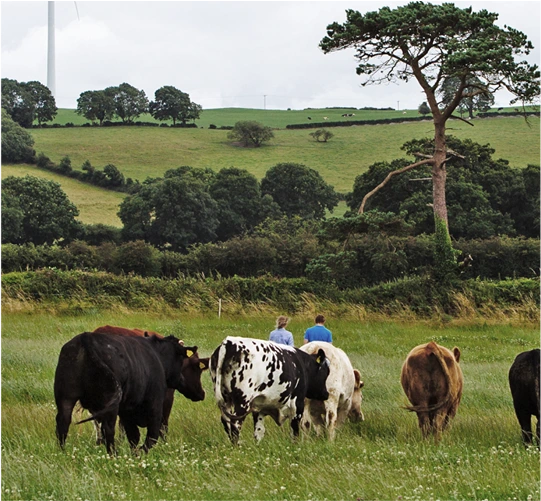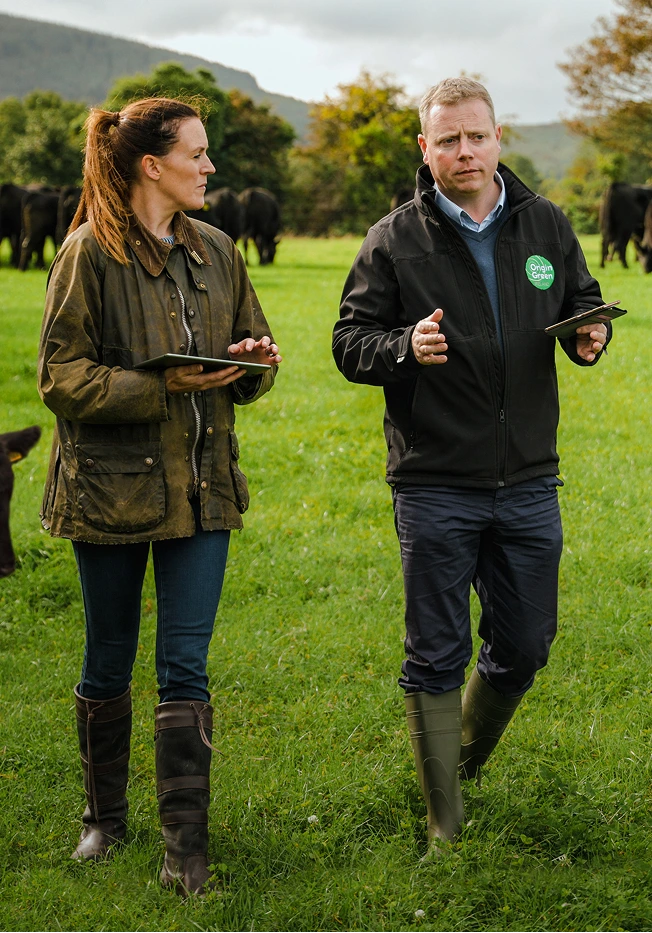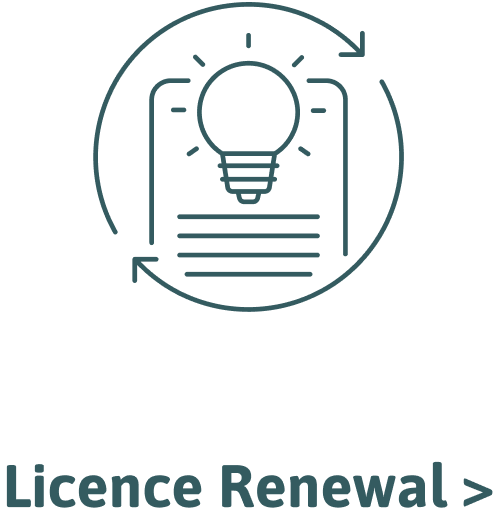The role of traceability in organic certification
When it comes to consumer health and safety, the EU makes no compromises. The EU is committed to sustaining the highest international standards of food safety and animal health standards through coherent “farm to fork” systems and continuous monitoring. Animal identification and traceability through the whole beef production system are strictly implemented. These measures are reinforced independently by each member state’s food safety authority – in Ireland that is the Department of Agriculture Food and the Marine.
With an already established national sustainability programme, there has been a natural transition towards increased organic beef and lamb production in Ireland, with organic farming currently making up approximately 5% of the total farmed land. Organically farmed land has tripled since 2020.

The EU organic production system entails a strict set of rules that require detailed record keeping, as well as been audited on an annual basis. As many of Ireland’s beef and lamb farms are already subject to record keeping and audits every 18 months, originally as part of the quality assurance schemes, and more recently as part of the Sustainable Assurance Schemes, there has been a natural transition to organic farming.
Traditionally, the on-farm audits were carried out with the main objective being food safety and focused on traceability and animal health & welfare. These were expanded in 2012 to include environmental goals and improvements, such as biodiversity, energy efficiency, water measures and socio-economic factors. With these criteria being assessed already on most farms in Ireland, organic food production is an obvious conversion for many of these farmers.
Our organic meat processors are also part of the Origin Green Programme. Launched in 2012, Origin Green is a national sustainability programme for Ireland’s entire food and drink industry. It is the first and only food and drink sustainability programme in the world operating on a national scale, uniting government, the private sector and food producers through Bord Bia, the Irish Food Board. Working across all levels of the supply chain, this independently verified programme, enables Ireland’s farmers, food producers and retail and foodservice operators to set and achieve measurable sustainability targets – reduce environmental impact, serve local communities more effectively and protect the rich natural resources that Ireland enjoys.
Traceability in the organic food supply chain
- Daily updates: Traceability information for food of animal origin, sprouts, and seeds must be updated daily.
- Accessibility: Information must be clearly accessible and retrievable by the food business operators receiving these products to comply with food safety regulations.

The steps to organic
certification

Submit completed forms and required documentation including product details, labels, and payment.
An inspector assesses premises, products, processes, and records for compliance with Organic Food and Farming Standards.
Certification team reviews inspection reports and recommendations, submitting files for Certification Panel review.
Mandatory yearly inspections to verify compliance, including potential unannounced visits and product sampling.

Annual renewal forms and fees ensure ongoing certification eligibility.
Find out more about:
Pasture Raised
Ireland